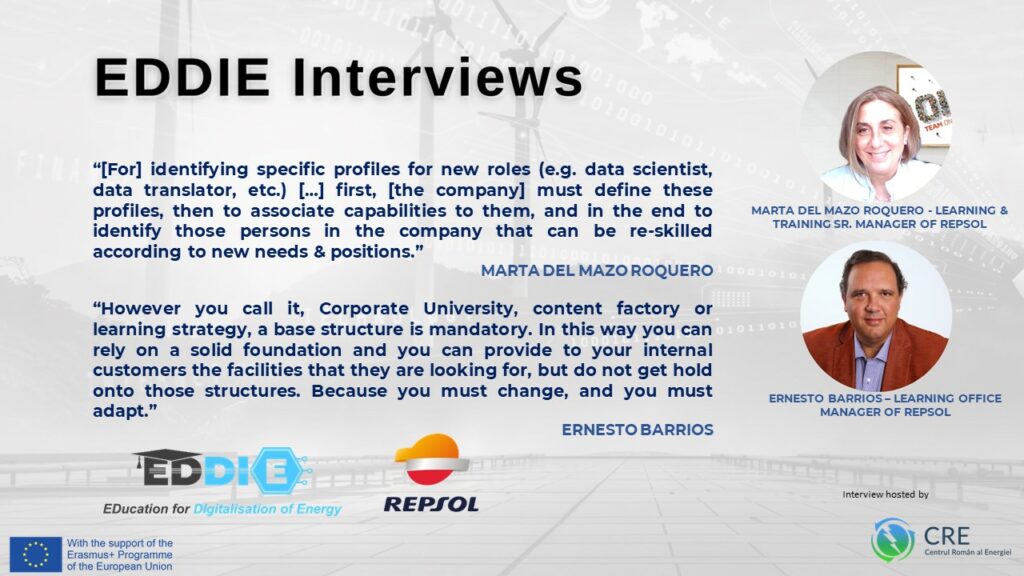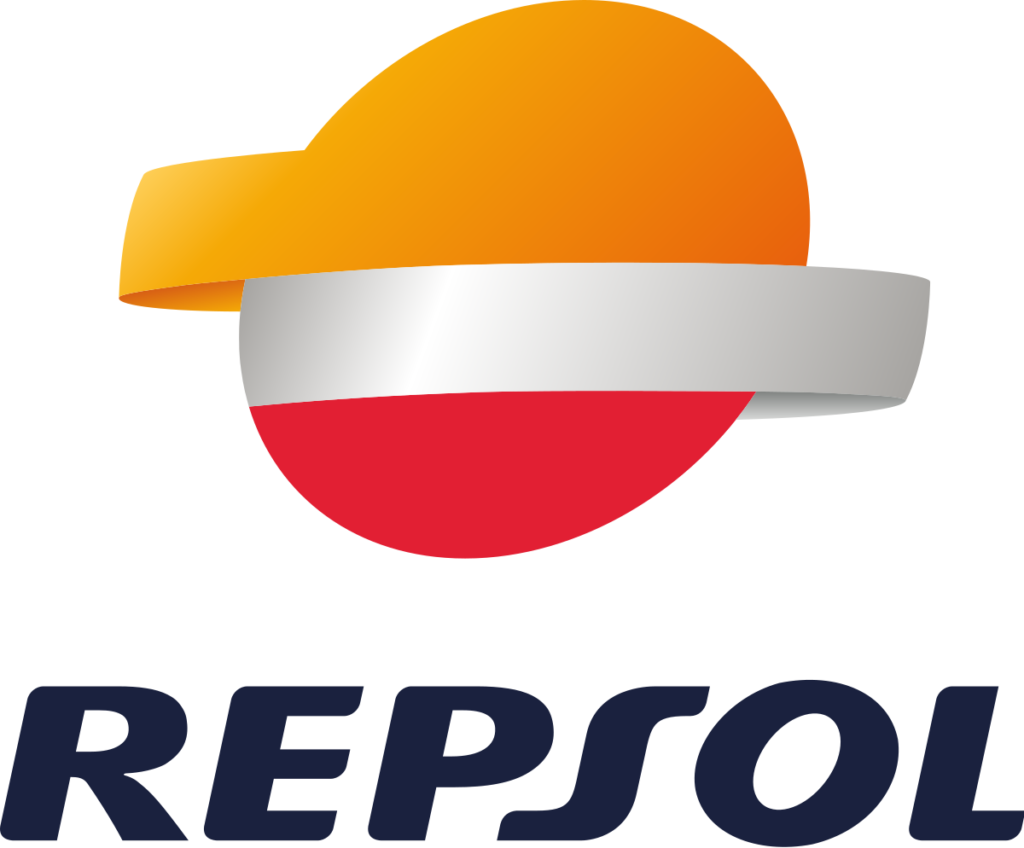6th guest – Partner REPSOL
Marta del Mazo Roquero – Learning & Training Senior Manager of REPSOL
Ernesto Barrios – Learning Office Manager of REPSOL

Ms. del Mazo, you have a long history in REPSOL learning areas. Can you tell us how a business from the energy sector learns?
Training is for the energy sector as important as it is for any other sector. We have a clear base of technical backgrounds, therefore, in our case the technical training is key.
But what is important is to be sure you are offering and designing a training based on the people needs in each moment. Right now, it is not a good moment to invest in general training and to customize the offers specifically for the needs is essential.
Additionally, we have been affected by the changes in the technology which required upskilling and re-skilling programmes of the personnel in order to be ready for the new work they have to do in the context of energy transition.
Mr. Barrios, what are the most important benefits brought by the products under development in EDDDIE Project?
The most important benefit the EDDIE provides consists in a holistic approach involving all the elements of the project.
We always speak about the skills gap, about shareholders influence, interventions, and relevance, about the needs of communicating of what we are doing, but somehow EDDIE is going over all those points of views in a systematic way. I would say that this plan for a specific sector, such as the energy sector, is relevant.
I do not remember something that was done before in such a complete and structured way for our sector.
Therefore, it is not a matter of getting into all the specifics of learning or cultures or methodologies or technologies applied, but into how all should be addressed with reference at the environment in which we all are living in.
Ms. del Mazo, how is the process of developing capabilities maps of the personnel and what urgent & critical needs you have recently identified in the sector due to digitalization?
When we are talking about capabilities for the people, we are always thinking for the people as a whole. The company is trying to work with technical capabilities, but also improving leadership, communication, and many other skills.
We put attention on what these core capabilities are for allowing in this way to the professionals to do a much better performance in their positions.
According with digitalization and all the changes what is relevant, at least for a company as REPSOL, is to have a strategic guideline related to transform the company to a data driven company. In this direction, we are developing and identifying these technical competences linked with digitalization.
In the same note, identifying specific profiles for the new roles (like data scientist, data translator, etc.) is on our agenda. First, we must define these profiles, then to associate capabilities to them, and in the end to identify those persons in the company that can be re-skilled according to the new needs and positions.
Currently, the company is working also in an internal positions potential & talent mapping.
Mr. Barrios, you are a founder member of the Corporate University of REPSOL and you created the learning strategy, the instructional model, and the content factory that they are running. Can you share your lessons learned during this process that may help EDDIE Project in its work?
I mentioned the holistic approach of EDDIE project, and entering to the specific is something that must be adapted to the situation we are living at every moment.
We used to have a Corporate University (CU), we no longer talk about CU and we moved our learning strategy from one side to the other and everything is changing, as Marta said already. Digitalization forces us to adapt to new situations every day.
Therefore, however you call it, CU, content factory or learning strategy, a base structure is mandatory. In this way you can rely on a solid foundation and you can provide to your internal customers the facilities that they are looking for, but do not get hold onto those structures. Because you must change, and you must adapt. I am speaking about a process I have led about 10 years and in this period, things have changed – a lot (too much).
What we are leading today is a learning culture development process which is now based on the offer that peer-to-peer learning initiative and this process needs a completely different structure that we used when we spoke about CU.
Nowadays we are learning from our peers, we are learning everywhere and from anywhere.
A simple idea that opens eyes – to adapt to learn in our day-to-day life to the way we learn in our organizations.
What are you doing when you are not working?
Mr. Barrios:I hate puzzles. 😊 The reason: trying to solve a puzzle and in the end, I found out that one piece was missing. My grandparent used to solve puzzles and to frame them once finished.
My time is also split between my kids’ activities, but for myself, I love horseback riding through the fields and woods near home and I like to play the drums – a real challenge. Previous, I used to play to an instrument named “akahon” as part of a professional group.




